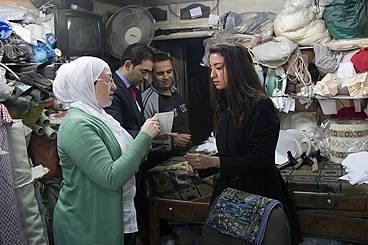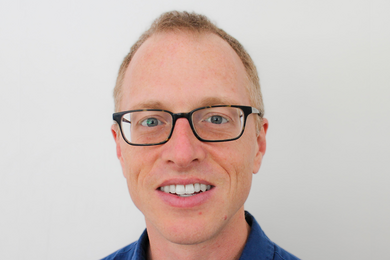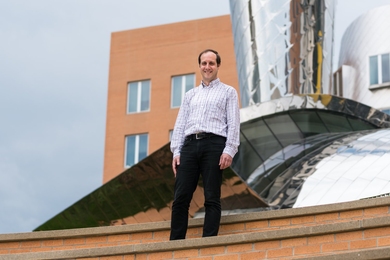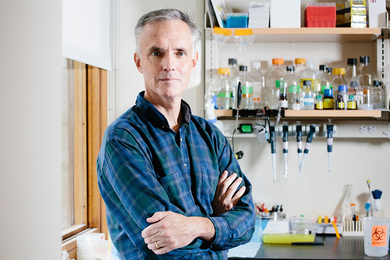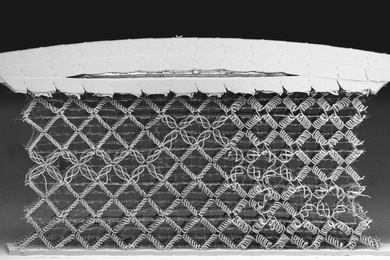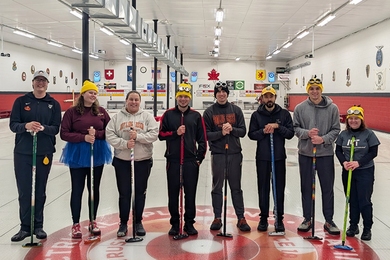Since its founding in 2001, the MIT IDEAS Global Challenge has been a launch point for entrepreneurs and sustainable impact. It has awarded almost $500,000 to more than 90 teams to realize their ideas. In this series, we learn more about the teams that are entering this year.
Access to capital remains difficult for base-of-the-pyramid consumers in many parts of the world. Inspired by the access enabled by the layaway payment system in the United States, Bluelight is developing a similar model tailored to serve low-income customers in Jordan.
As an alternative to high-interest debt, Bluelight allows these customers to purchase savings cards at a modest price, which serve as microdeposits. These microdeposits are tracked through an SMS-based database, and, once enough are purchased, the customer can exchange their savings cards for an equivalent-value gift card at a retail partner. This savings method is particularly attractive in Jordan, where many households do not use savings accounts or other formal financial services. Bluelight is currently running a pilot with partners Safeway and Ahli Microfinance Company to further hone the idea for the market.
The Bluelight team includes Hoda Eydgahi, a PhD candidate in electrical engineering and computer science; John Ikeda, a Harvard Kennedy School student; Mustafa Khalifeh MBA ’13; Manoah Koletty MBA ’13, who is dually enrolled in the Harvard Kennedy School; and Blaize Wallace MBA ’13. Here, they share the origins for Bluelight.
Q. What is the vision for Bluelight?
A. Our vision is to break the cycle of debt and help families in the developing world take control of their personal finances. For many people at the base of the pyramid, savings accounts and affordable consumer credit are inaccessible, so they wind up using tools that keep them mired in poverty. Our goal is to provide a better way for them to get the things they need.
Q. What types of products would Bluelight enable consumers to purchase that they currently are not able to?
A. Smartphones appear to be something that most customers are interested in. Android phones are now available in Jordan for less than $100 and are more and more popular. Just as SMS-based technologies are have had a transformative impact in the developing world, we imagine that smartphones could have an even bigger impact, and are glad to help consumers access this technology.
Q. Who does Bluelight benefit?
A. Bluelight benefits households in Jordan by providing them an easy, convenient way to save up for the things they need, rather than using expensive credit or trying to save at home (which is risky and requires strong willpower not to spend the money). It particularly benefits women, who are able to have more influence over family finances in a region where that is sometimes a challenging issue.
Q. What are the next steps in Bluelight's development?
A. We are continuing to monitor the pilot test and will be interviewing our customers as they complete their cards. Over the summer, some of our teammates will be out in Jordan to plan the next stage of growth, and we will be fundraising with grant making organizations and impact investors to find the resources to take Bluelight to the next level.
For more information about Bluelight, visit their team page. IDEAS Global Challenge will hold its Awards Celebration on Thursday, May 2, at 7 p.m. in Building 34-101.
Access to capital remains difficult for base-of-the-pyramid consumers in many parts of the world. Inspired by the access enabled by the layaway payment system in the United States, Bluelight is developing a similar model tailored to serve low-income customers in Jordan.
As an alternative to high-interest debt, Bluelight allows these customers to purchase savings cards at a modest price, which serve as microdeposits. These microdeposits are tracked through an SMS-based database, and, once enough are purchased, the customer can exchange their savings cards for an equivalent-value gift card at a retail partner. This savings method is particularly attractive in Jordan, where many households do not use savings accounts or other formal financial services. Bluelight is currently running a pilot with partners Safeway and Ahli Microfinance Company to further hone the idea for the market.
The Bluelight team includes Hoda Eydgahi, a PhD candidate in electrical engineering and computer science; John Ikeda, a Harvard Kennedy School student; Mustafa Khalifeh MBA ’13; Manoah Koletty MBA ’13, who is dually enrolled in the Harvard Kennedy School; and Blaize Wallace MBA ’13. Here, they share the origins for Bluelight.
Q. What is the vision for Bluelight?
A. Our vision is to break the cycle of debt and help families in the developing world take control of their personal finances. For many people at the base of the pyramid, savings accounts and affordable consumer credit are inaccessible, so they wind up using tools that keep them mired in poverty. Our goal is to provide a better way for them to get the things they need.
Q. What types of products would Bluelight enable consumers to purchase that they currently are not able to?
A. Smartphones appear to be something that most customers are interested in. Android phones are now available in Jordan for less than $100 and are more and more popular. Just as SMS-based technologies are have had a transformative impact in the developing world, we imagine that smartphones could have an even bigger impact, and are glad to help consumers access this technology.
Q. Who does Bluelight benefit?
A. Bluelight benefits households in Jordan by providing them an easy, convenient way to save up for the things they need, rather than using expensive credit or trying to save at home (which is risky and requires strong willpower not to spend the money). It particularly benefits women, who are able to have more influence over family finances in a region where that is sometimes a challenging issue.
Q. What are the next steps in Bluelight's development?
A. We are continuing to monitor the pilot test and will be interviewing our customers as they complete their cards. Over the summer, some of our teammates will be out in Jordan to plan the next stage of growth, and we will be fundraising with grant making organizations and impact investors to find the resources to take Bluelight to the next level.
For more information about Bluelight, visit their team page. IDEAS Global Challenge will hold its Awards Celebration on Thursday, May 2, at 7 p.m. in Building 34-101.
